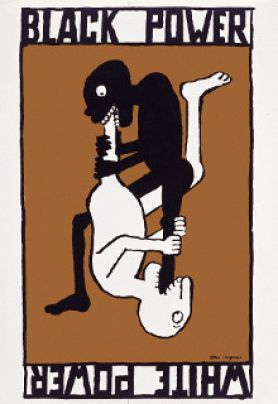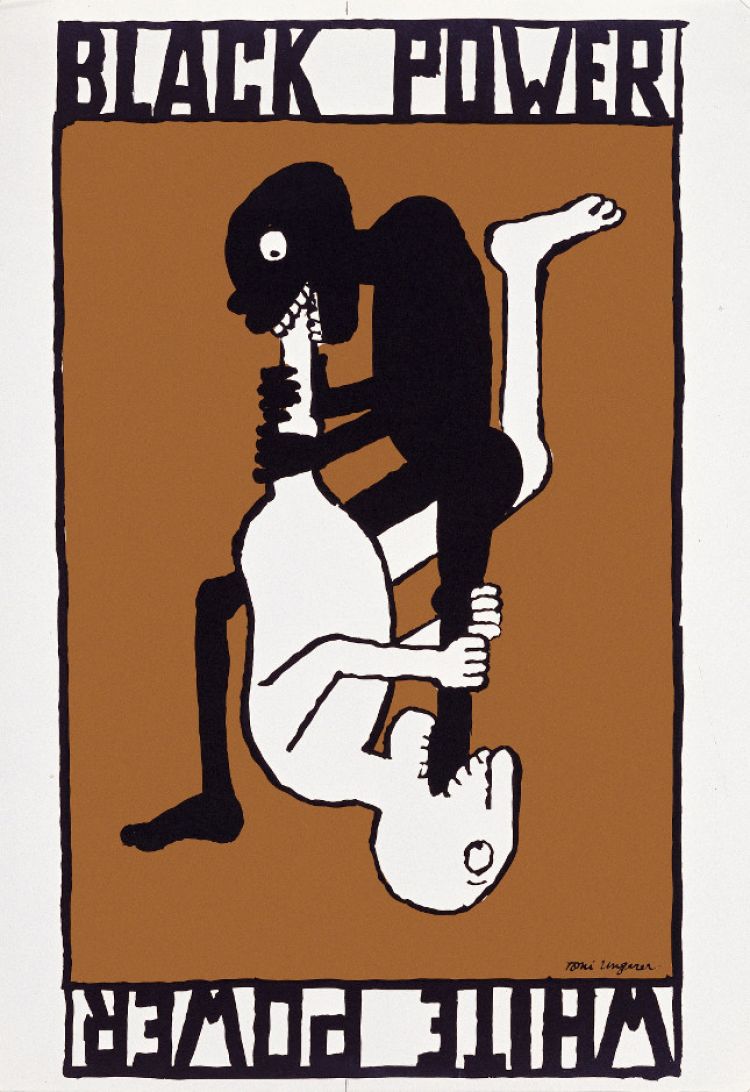Black Power/ White Power

"I put my talents at the service of my commitments," says Tomi Ungerer.
One of the major protest themes in American politics dealt with by Ungerer is racial segregationism. Arriving in the United States, he was shocked to find that blacks did not have the same rights as whites, and that American society was a society not so much of integration as of exclusion. The poster "Black Power / White power", with a drawing originally intended for the cover of the New York magazine Monocle in 1964, has gone round the world. Tomi Ungerer had the nerve to confront both sides with their responsibilities: he draws black and white devouring each other, head-to-tail, like playing card figures. At the same time, to give a topical slant to the image and show that for him all extremism is close to fascism, he uses the slogan "Black Power" for the Black Panthers and "White power" for the Ku Klux Klan.
The style is that of all his political posters and tends to make the subject even more dramatic: a thick black line surrounding the shapes, the colours few and contrasting sharply with black or white, while the brown background can suggest constructive miscegenation.
With its trenchant line and aggressive graphics, this image and those done for the Vietnam War became, like Paul Davis' "Che Guevara", icons of the poster-of-protest.
